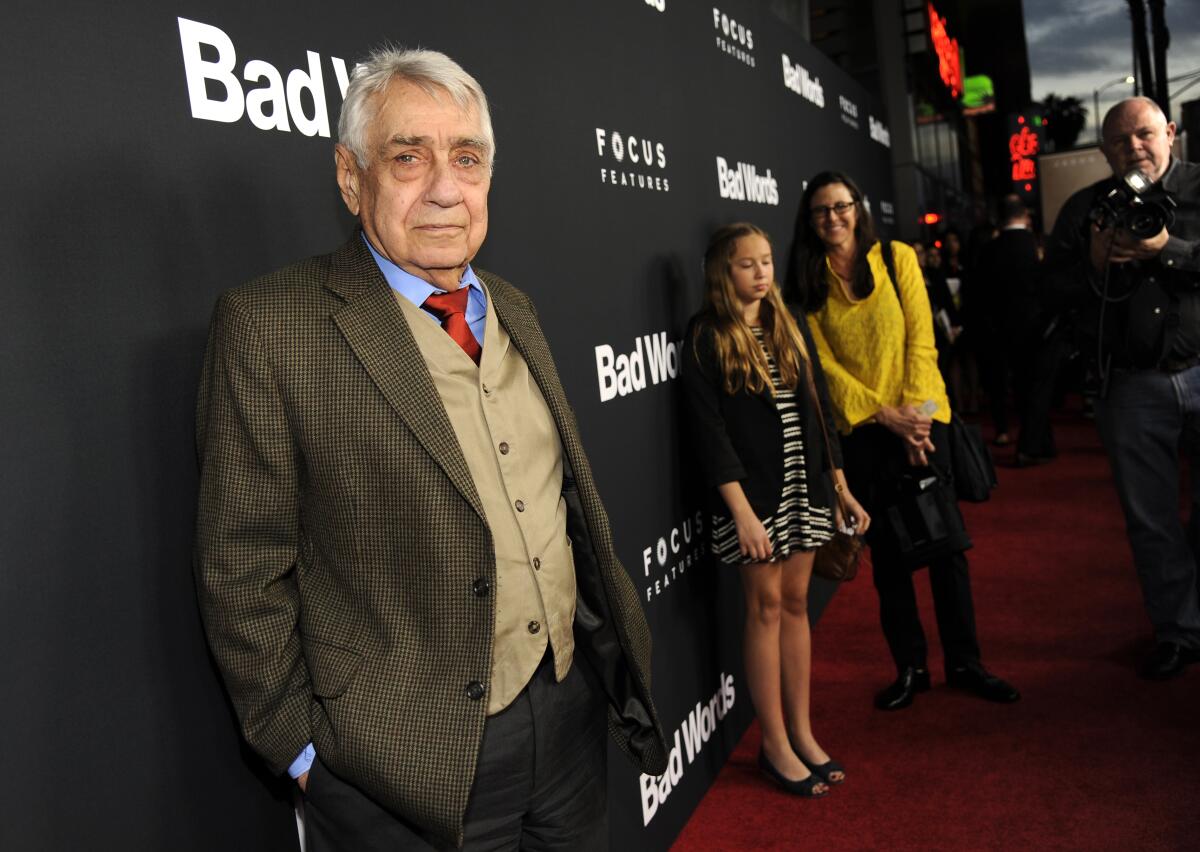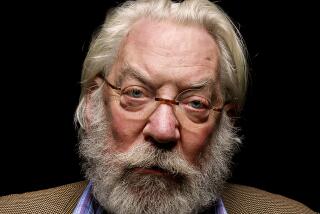From ‘Seinfeld’ to ‘Magnolia,’ journeyman character actor Philip Baker Hall dies at 90

Acclaimed character actor Philip Baker Hall, whose prolific career ranged from collaborations with director Paul Thomas Anderson, including “Magnolia” and “Boogie Nights,” to a scene-stealing turn as hard-bitten library cop Lt. Bookman on “Seinfeld,” died Sunday at age 90.
Hall’s death was announced Monday on Twitter by Times sports writer Sam Farmer, who wrote, “My neighbor, friend, and one of the wisest, most talented and kindest people I’ve ever met, Philip Baker Hall, died peacefully last night. He was surrounded by loved ones. The world has an empty space in it.”
No cause of death was given, but Hall had emphysema in recent years.
With his perpetual hangdog expression and often crusty, world-weary demeanor, Hall proved equally adept at drama and comedy, appearing in nearly 200 film and television projects, as well as more than 100 roles in the theater throughout his six-decade career. Continuing to work late into his life, even as he required an oxygen tank at times due to his health issues, he had appearances in films including “Argo” and “Bad Words” and as the cranky neighbor Walt Kleezak on the ABC sitcom “Modern Family.”
Hall, who didn’t begin acting until he was in his 30s, proved something of a late bloomer. Born in Toledo, Ohio, on Sept. 30, 1931, he served as a U.S. Army translator in Germany and worked as a high school teacher before trying his hand at acting. After building a career on the New York stage, he relocated to Los Angeles and made his big-screen debut with an uncredited role in Michelangelo Antonioni’s 1970 film “Zabriskie Point.”
After years of guest starring in TV shows such as “Good Times” and “M*A*S*H,” Hall first drew widespread notice for his turn as disgraced former President Nixon in the 1983 one-man play “Secret Honor” at the Los Angeles Actors’ Theatre. He reprised the role on stage in Boston, Washington and off-Broadway, where he earned a Drama Desk nomination, and on the big screen in Robert Altman’s 1984 feature film adaptation.
“Hall is a wonder even before he speaks,” Times theater critic Don Shirley wrote in a review of the play. “Although Hall never resorts to a cliched impersonation, his suggestion of Nixon’s physiognomy is frequently uncanny, especially in profile.”
Continuing to work steadily throughout the 1980s, Hall had supporting roles in “Ghostbusters II,” “Say Anything” and “Midnight Run,” among other films, and appeared frequently in TV series including “Miami Vice,” “Benson” and “Family Ties.”
In the early 1990s, Hall made a pair of memorable appearances as a hard-boiled detective pursuing a 20-years-overdue library book on “Seinfeld,” drawing new fans to his work. “What’s my problem? Punks like you — that’s my problem,” Hall, as Bookman, said in one oft-quoted scene. “And you better not screw up again, Seinfeld, because if you do, I’ll be all over you like a pit bull on a poodle.” So strong was the impression Hall left that Bookman came back for an encore appearance on the series’ 1998 finale.
In 1993, Hall was cast by Anderson in the writer-director’s short film “Cigarettes & Coffee,” forging a relationship that would give his career another boost. The two had met on a PBS film on which Anderson was serving as a production assistant. “He was a fan of my work, so how could I not like him?” Hall said of Anderson in a 2017 interview with the Washington Post. “We would talk and have cigarettes and coffee.”
Hall later starred as a grizzled gambler who mentors a younger protégé in Anderson’s 1997 feature debut, “Hard Eight,” proving that he could mesmerize an audience in a lead role, and went on appear in Anderson’s “Boogie Nights” and “Magnolia.”
“I have a particular fascination with character actors, with wanting to turn them into lead actors,” Anderson told The Times in 1998. “I see Philip Baker Hall, he’s just ... an actor that I love. There’s no one else with a face like that, or a voice like that.”
Hollywood once again took notice, casting Hall in key supporting roles in films like “The Insider” and “The Talented Mr. Ripley.” But Hall himself was circumspect about the newfound attention he was receiving.
”When you’re in demand, it doesn’t matter whether you’re right for the role,” Hall told The Times in 1998. “It has nothing to do with it, once you’re given the keys to the kingdom.”
Hall — who would go on to work steadily in film and TV for two more decades — seemed bemused by the notion that he was becoming a star of sorts in his late 60s, at a point when some actors begin to contemplate retirement.
“I can honestly say I’m being offered more work than I can handle,” he said. “By the standards of a struggling stage actor, I’ve been doing well.”
More to Read
Only good movies
Get the Indie Focus newsletter, Mark Olsen's weekly guide to the world of cinema.
You may occasionally receive promotional content from the Los Angeles Times.











